Infographic: Liquefied Natural Gas (LNG) is a threat to the Arctic
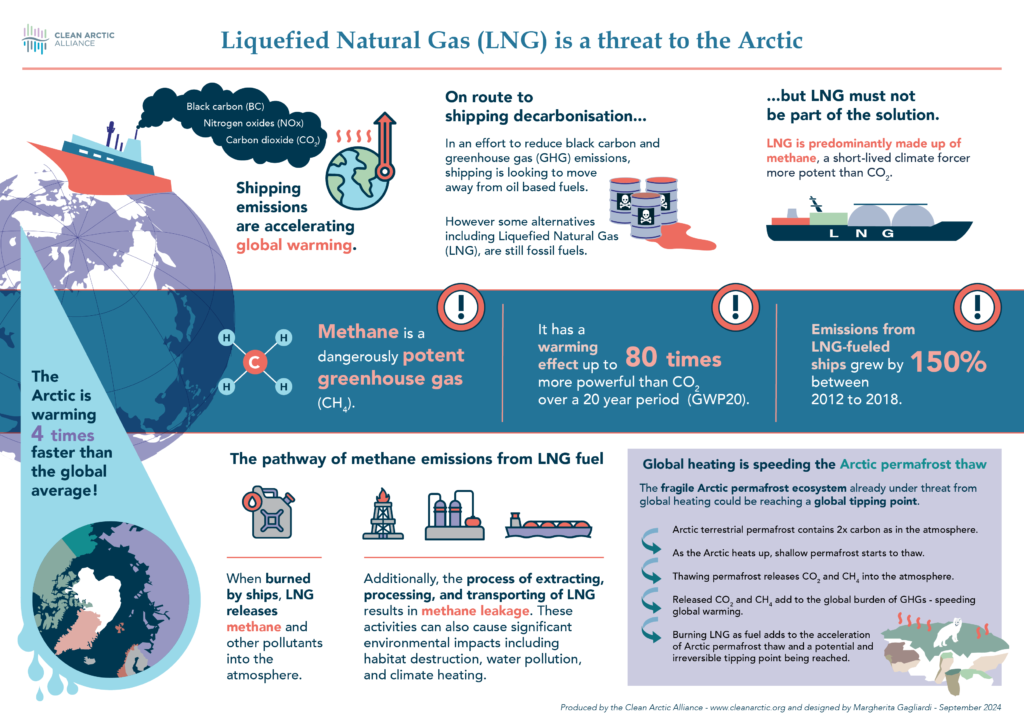
When burned by ships, Liquefied Natural Gas (LNG) emits methane a dangerously potent greenhouse gas. And as a fossil fuel, LNG clearly should not be part of the solution to shipping decarbonisation. This is particularly worrying in the Arctic where growing extraction, processing, and transport result in methane leakage, adding to the warming effect on the fragile Arctic permafrost ecosystem.
Find out what the Clean Arctic Alliance – and others – are asking of Arctic nations, shipping industry and finance sectors if they truly want to reduce emissions of CO2, black carbon, and methane by 2030.
Pre-MEPC 82 Briefing: Everything you need to know – black carbon, GHGs, scrubbers, noise, plastics, and other shipping impacts
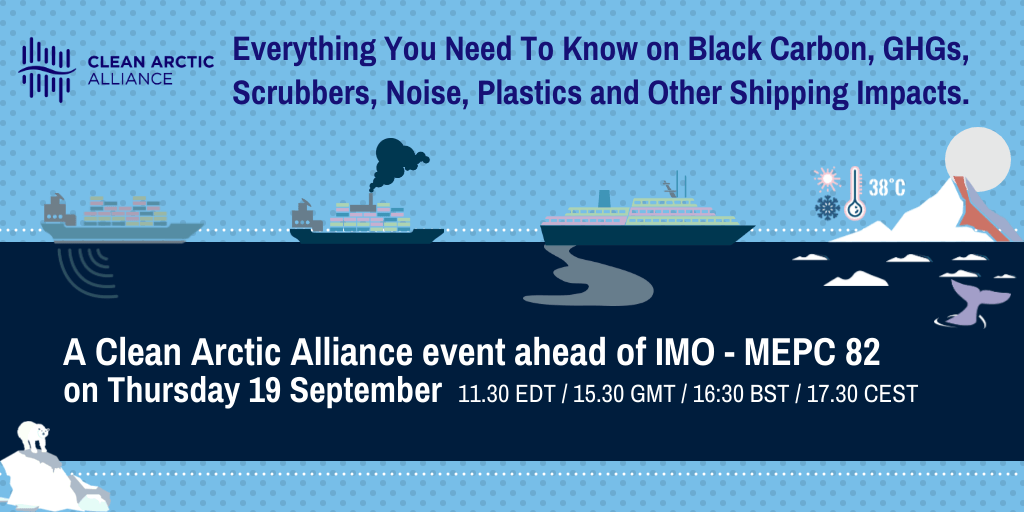
This briefing aimed to provide insights on the agenda for climate emissions and marine pollution discussions at the forthcoming 82nd session of the International Maritime Organization’s (IMO) Marine Environment Protection Committee (MEPC 82, 30 September – 4 October 2024). The event presented the Clean Arctic Alliance’s expectations and recommendations for this meeting, and what is at stake for black carbon, ECAs, scrubbers, underwater noise, GHGs, plastics and biodiversity.
Briefing: Only Polar Fuels should be used in the Arctic (north of 60°N)
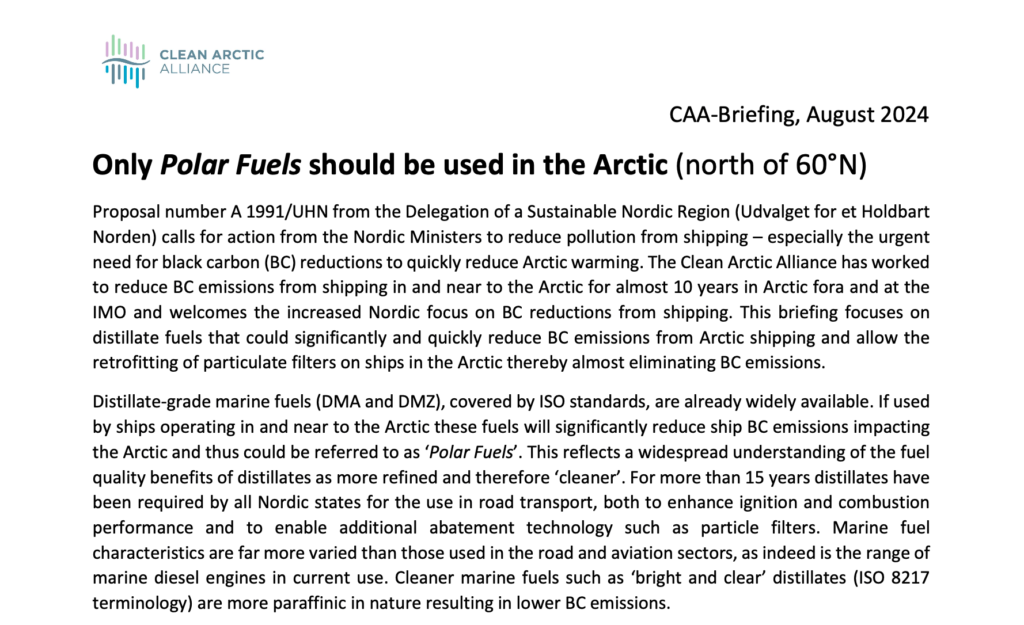
The Clean Arctic Alliance urge the Nordic Council and Nordic Council of Ministers: to support the concept of polar fuels, to support regulating for the use of polar fuels in the Arctic in IMO’s MARPOL Convention, and to agree that Nordic countries should make Polar Fuels mandatory for ships sailing in their Arctic waters.
MEPC 82/9/7: Reduction of Underwater Radiated Noise From Commercial Shipping – Comments on document MEPC 8292
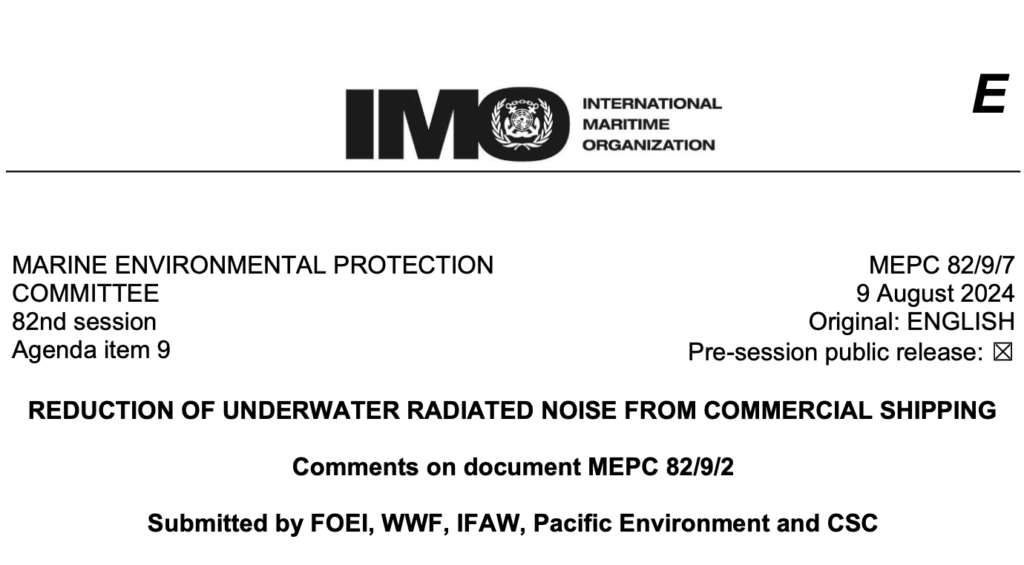
This document comments on document MEPC 82/9/2 and summarizes available resources and information to assist the shipping industry with uptake of the Revised guidelines for the reduction of underwater radiated noise from shipping to address adverse impacts on marine life (MEPC.1/Circ.906) and is also submitted as a contribution to the EBP for the Revised Guidelines.
MEPC 82/7/17: Global Tipping Points – Reduction of Greenhouse Gas Emissions from Ships
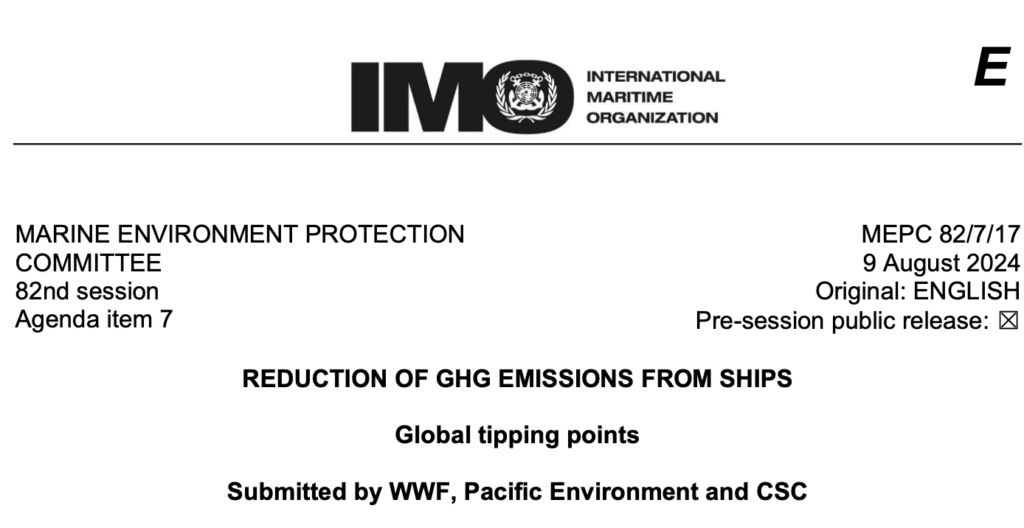
This document provides new information on planetary tipping points and introduces the concept of positive tipping points or sources of hope, in support of proposals contained in document MEPC 82/7/10 (FOEI et al.).
ISWG-GHG 17/3: Literature review on well-to-tank emissions from liquefied natural gas (LNG) imports to the EU
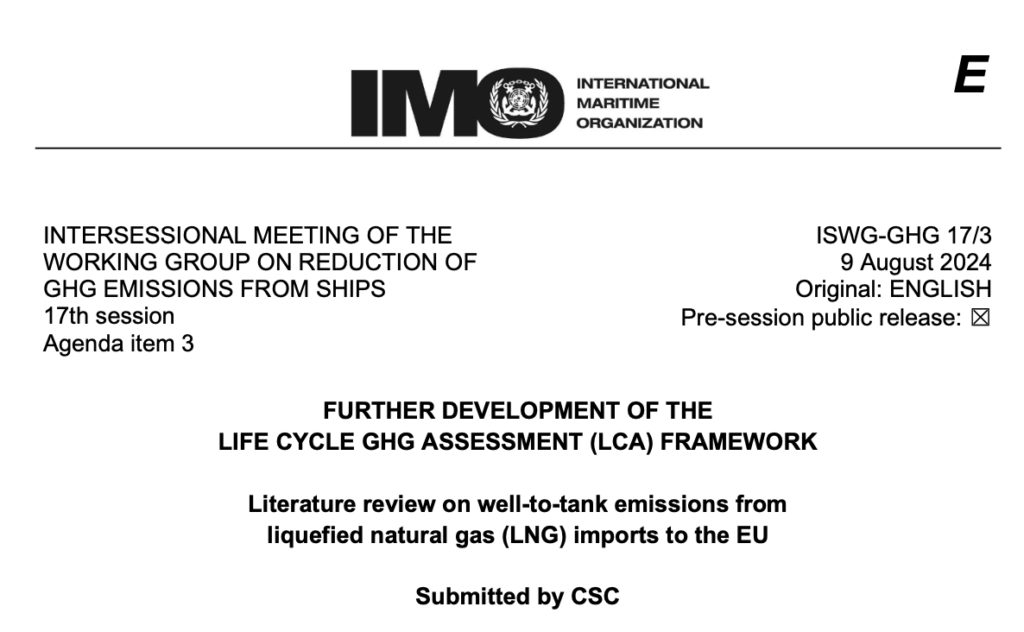
This document shares the findings of an extensive literature review on the well-to-tank (WtW) GHG intensity of liquified natural gas(LNG) imports to the European Union.
ISWG-GHG 17/2/17: The ITLOS Advisory Opinion: legal obligations on States
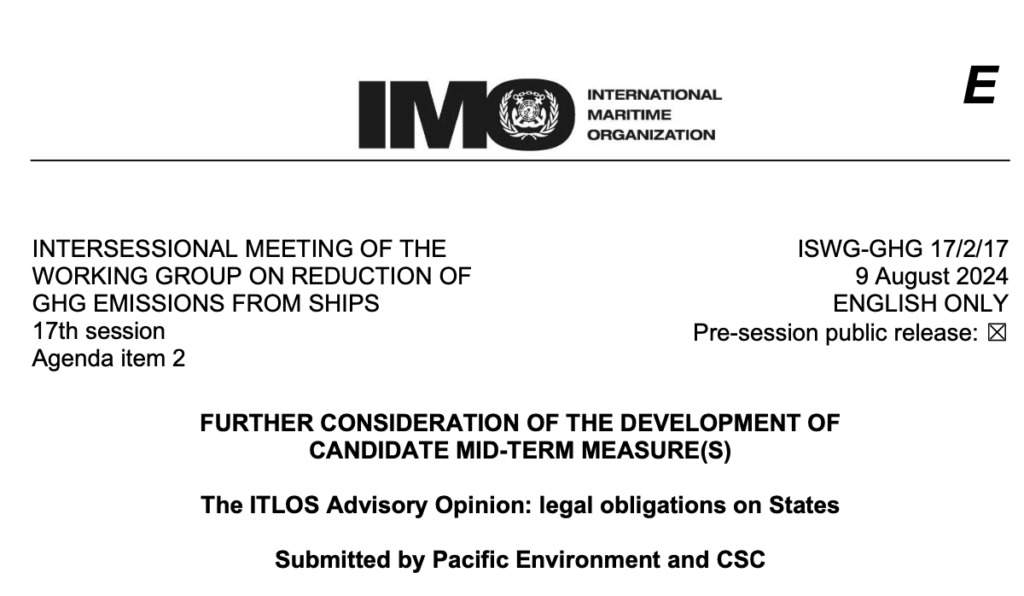
This document sets out key legal obligations relevant to the international shipping sector as explained by the International Tribunal for the Law of the Sea (ITLOS) in its advisory opinion of 21 May 2024 in case number 31 and puts forward policy recommendations that will assist States in complying with such obligations.
ISWG-GHG 17/2/19: Proposed process for the further development of the basket of candidate mid-term measures
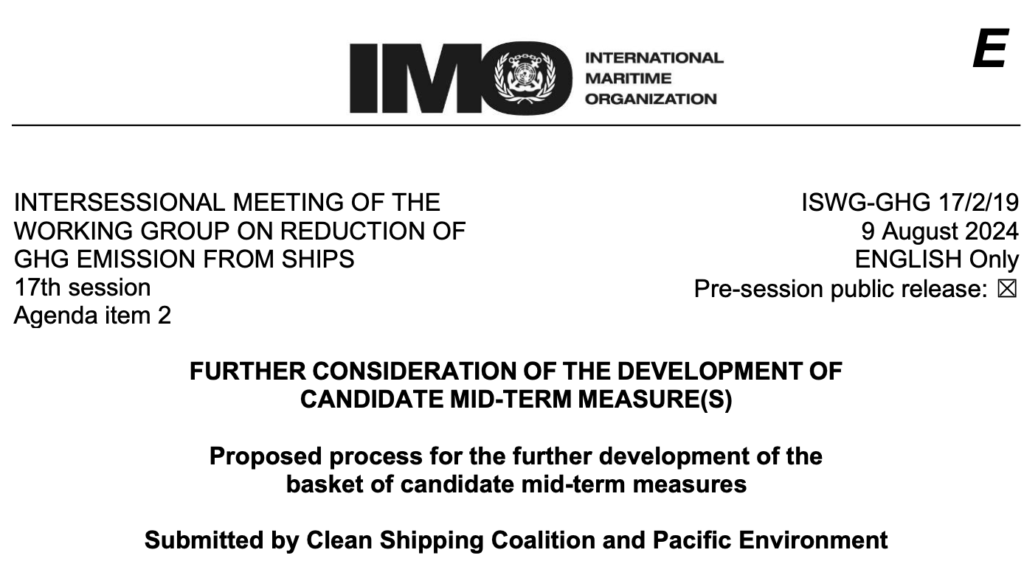
This document comments on documents MEPC 81/16 and MEPC 81/16/Add.1, annex 12 and invites the Working Group to ensure an inclusive, deliberative and transparent process for the further development of the basket of candidate mid-term measures during working groups at ISWG-GHG 17, MEPC 82 and at any other formal and informal sessions that might happen in between.
ISWG-GHG 17/2/20: Further information on the GHG Fuel Standard (GFS) and the incorporation of fuel and non-fuel on-board energy reward factors
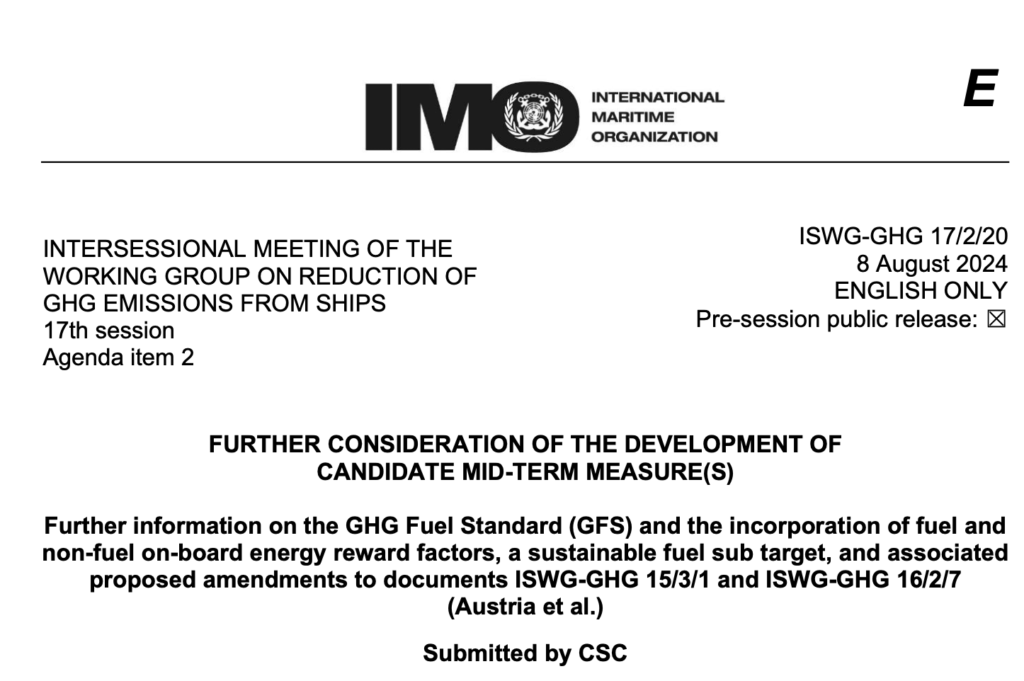
This document provides elements to consider in designing the GHG Fuel Standard (GFS), especially in relation to the GHG Fuel Intensity (GFI) targets, the competitiveness of alternative fuels and non-fuel technologies, and what constitutes a sustainable zero and near-zero emission fuel. Concretely, this document suggests the incorporation of dedicated mechanisms to promote non-fuels on- board energy sources (e.g. wind and solar) as well as sustainable marine fuels based on electrolytic-hydrogen.
International Shipping Coalition Launches “Beyond Methane Pledge”, Calling on Industry Leaders to End LNG and other methane-based fuels
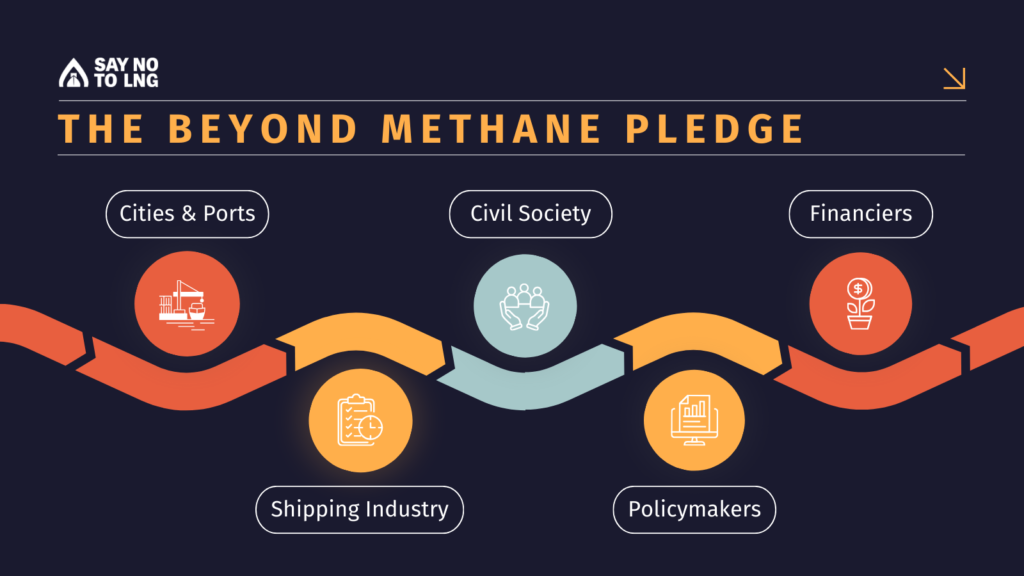
Backed by seven key civil society organizations, the Say No to LNG global shipping campaign today launched the ‘Beyond Methane Pledge’, an ambitious initiative seeking to halt the expansion of Liquefied Natural Gas (LNG) and other methane-based fuels, and phase-out their use in all sectors – globally.

